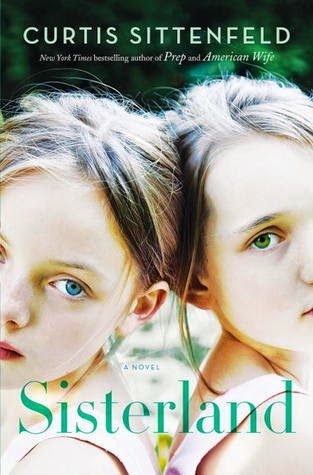I should probably come clean at the start of this review and admit that I bought Poppet almost solely because it had a creepy cover and was set in a high security mental institution, so that gives you some idea of the level of discernment I applied to this purchase. However, despite a somewhat ludicrous plot and some annoyingly clunky prose, Poppet was nothing if not an entertaining, dark and occasionally gruesome read. Great literature this is not, but a great read for a plane journey it absolutely is.
 Poppet is the sixth novel in Mo Hayder's Jack Caffery series. I haven't read the previous five, and perhaps I would have got more of a sense of Caffery's character if I had. From this novel alone, I felt that he was pretty much a standard maverick loner detective type without a great deal to distinguish him - however, this honestly didn't matter a great deal as much of the action happens from the points of other characters, primarily AJ, a senior psychiatric nurse dealing with an outbreak of self-harm incidents among patients at his place of work. AJ doesn't believe in The Maude, an evil presence rumoured to haunt Beechway, but it's obvious that something or someone is unsettling the inmates in the most terrifying of ways, and with Caffery's help, he's determined to discover what it is.
Poppet is the sixth novel in Mo Hayder's Jack Caffery series. I haven't read the previous five, and perhaps I would have got more of a sense of Caffery's character if I had. From this novel alone, I felt that he was pretty much a standard maverick loner detective type without a great deal to distinguish him - however, this honestly didn't matter a great deal as much of the action happens from the points of other characters, primarily AJ, a senior psychiatric nurse dealing with an outbreak of self-harm incidents among patients at his place of work. AJ doesn't believe in The Maude, an evil presence rumoured to haunt Beechway, but it's obvious that something or someone is unsettling the inmates in the most terrifying of ways, and with Caffery's help, he's determined to discover what it is.
 Poppet is the sixth novel in Mo Hayder's Jack Caffery series. I haven't read the previous five, and perhaps I would have got more of a sense of Caffery's character if I had. From this novel alone, I felt that he was pretty much a standard maverick loner detective type without a great deal to distinguish him - however, this honestly didn't matter a great deal as much of the action happens from the points of other characters, primarily AJ, a senior psychiatric nurse dealing with an outbreak of self-harm incidents among patients at his place of work. AJ doesn't believe in The Maude, an evil presence rumoured to haunt Beechway, but it's obvious that something or someone is unsettling the inmates in the most terrifying of ways, and with Caffery's help, he's determined to discover what it is.
Poppet is the sixth novel in Mo Hayder's Jack Caffery series. I haven't read the previous five, and perhaps I would have got more of a sense of Caffery's character if I had. From this novel alone, I felt that he was pretty much a standard maverick loner detective type without a great deal to distinguish him - however, this honestly didn't matter a great deal as much of the action happens from the points of other characters, primarily AJ, a senior psychiatric nurse dealing with an outbreak of self-harm incidents among patients at his place of work. AJ doesn't believe in The Maude, an evil presence rumoured to haunt Beechway, but it's obvious that something or someone is unsettling the inmates in the most terrifying of ways, and with Caffery's help, he's determined to discover what it is.
Although Caffery is a police officer, this isn't really a police procedural crime novel - most of Caffery's activities in the book take place outside his police remit, in fact. It's a gripping suspense mystery with strong elements of horror and of the psychological thriller genre - a sort of gritty, grimy version of modern gothic, perhaps. There was a great deal in the story that I didn't see coming, and the scenes in the psychiatric hospital conjure up a strong sense of atmosphere that works extremely well. The 'poppets' of the novel's title are a stroke of sinister genius, as is the case history of Isaac Handel, a recently discharged patient with a shocking past.
Less effective is the building of the relationship between AJ and his colleague Melanie, whose romance has a tendency to descend into cringe-inducing territory - and I was unconvinced by a subplot involving Caffery's investigation into the disappearance of a minor celebrity, Misty Kitson, who is almost certainly dead yet whose body has yet to be recovered. I must concede that it may have made more sense to me if I'd read the previous books in the Caffery series and better understood his history with Flea, a police diver connected with the Kitson case, but as it was, it seemed an unwelcome digression from the events at the psychiatric hospital.
There are some tiresome cliches and stereotypes in Poppet - I was itching to edit at times - but as an over-the-top horror/crime hybrid, it works extremely well, and I'd consider reading another in the series.


